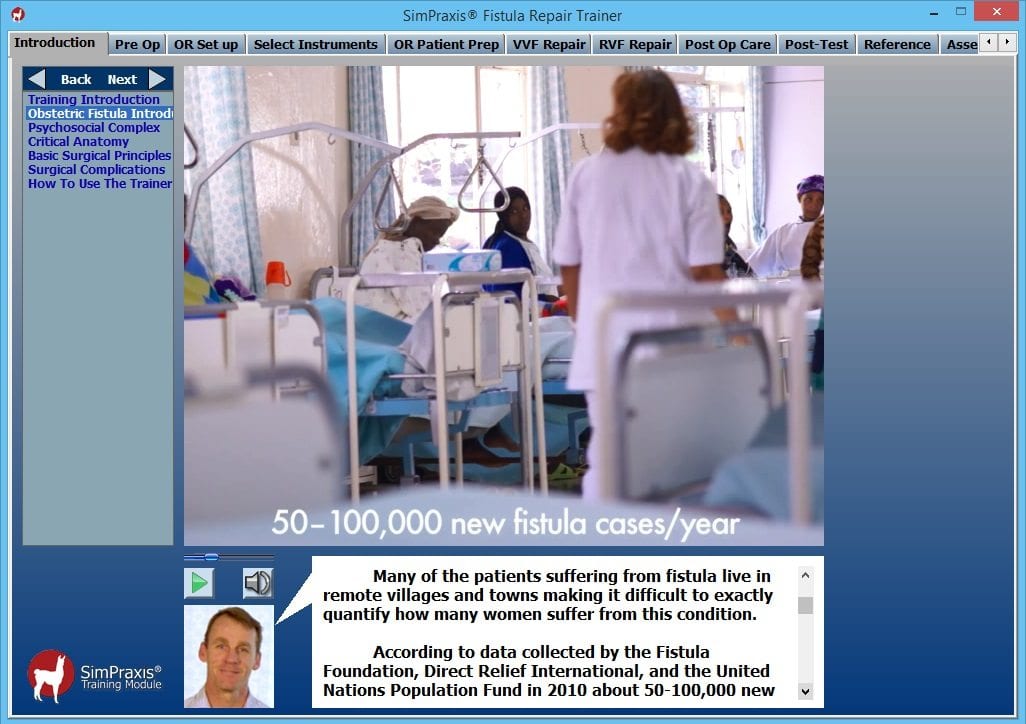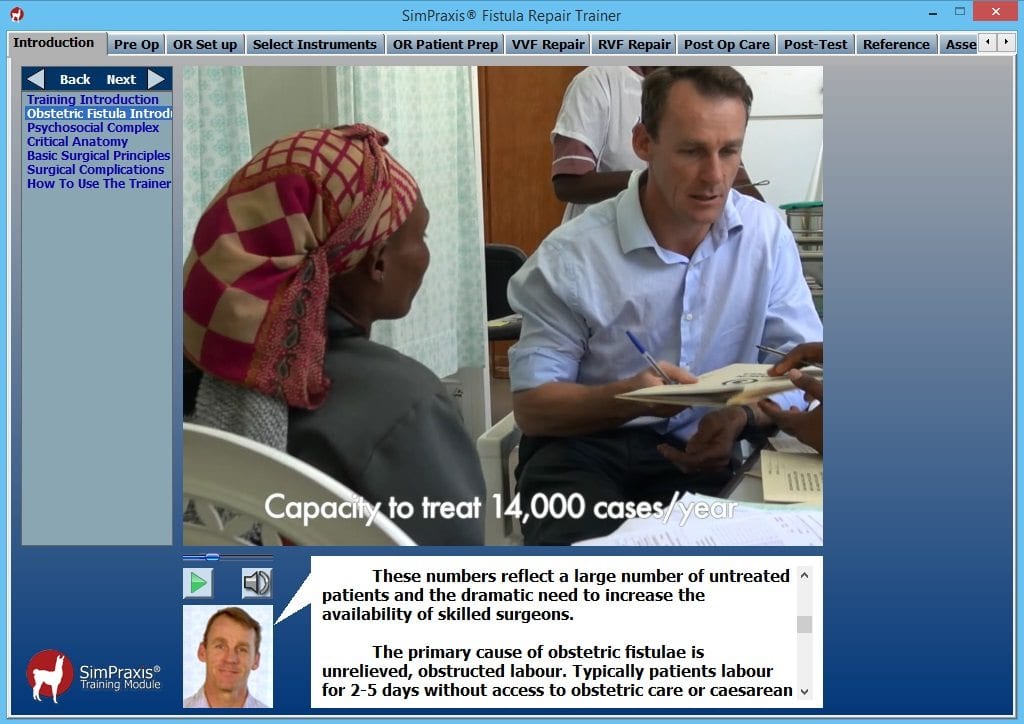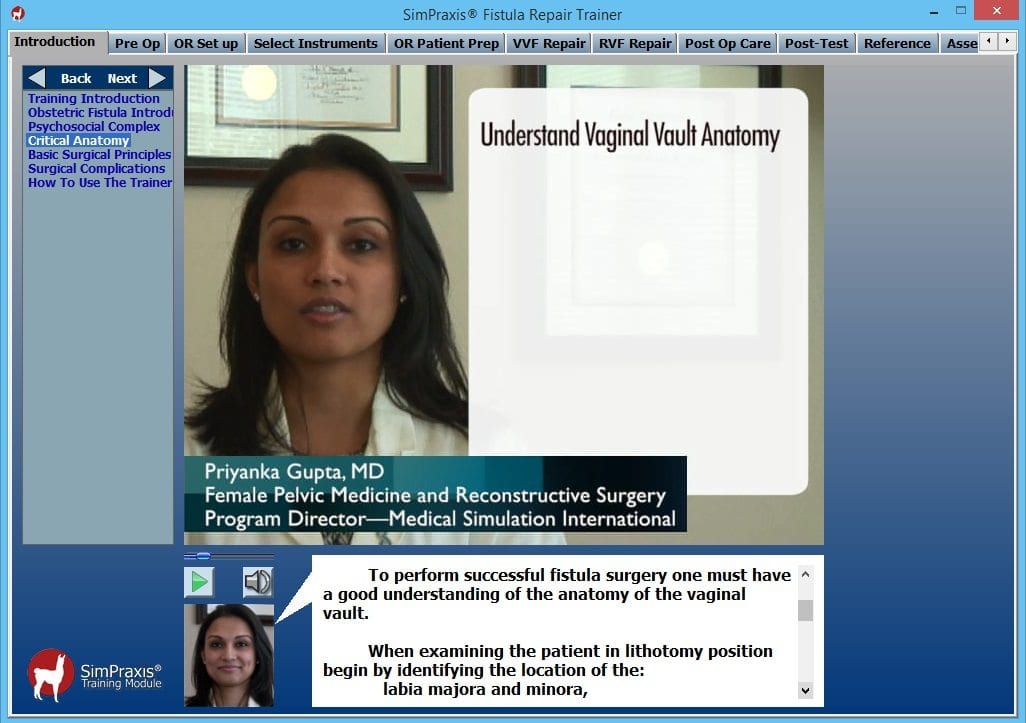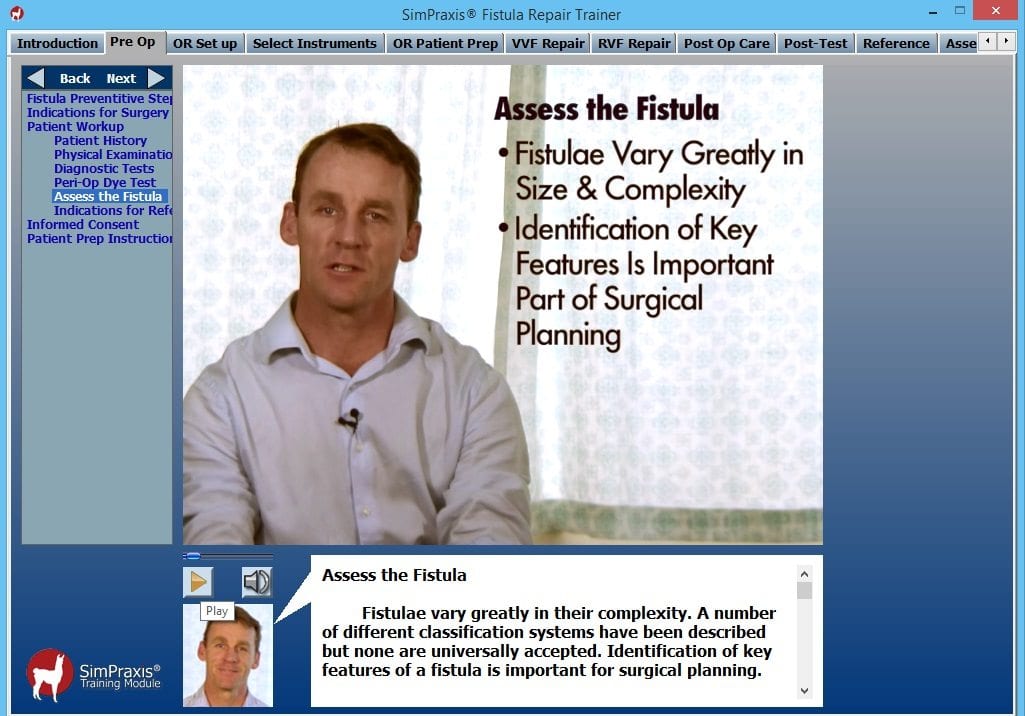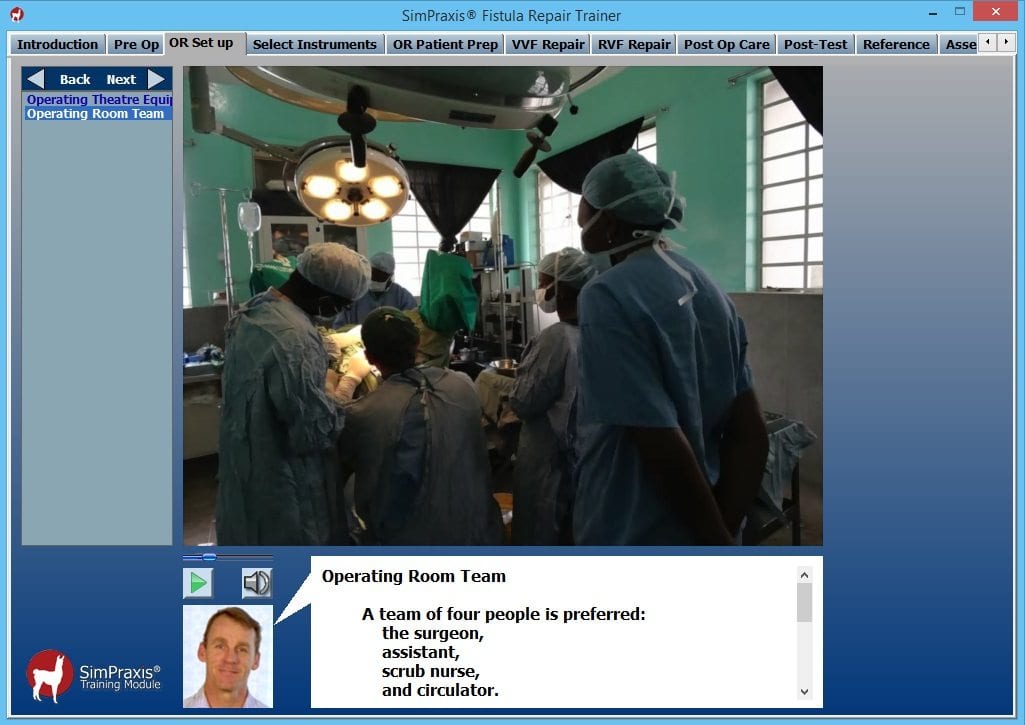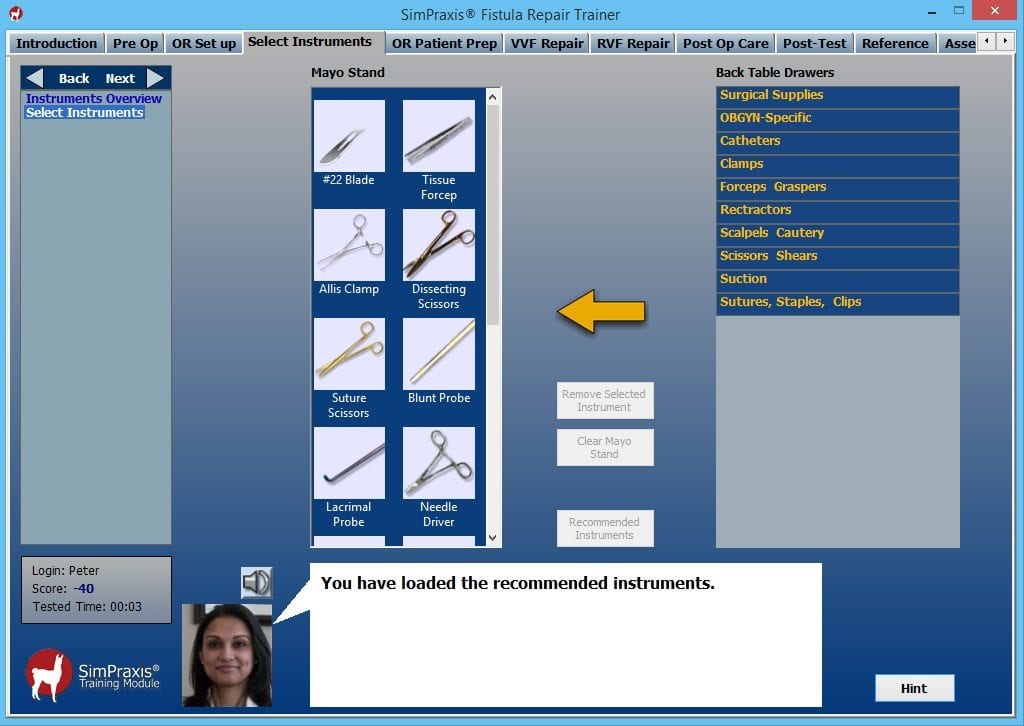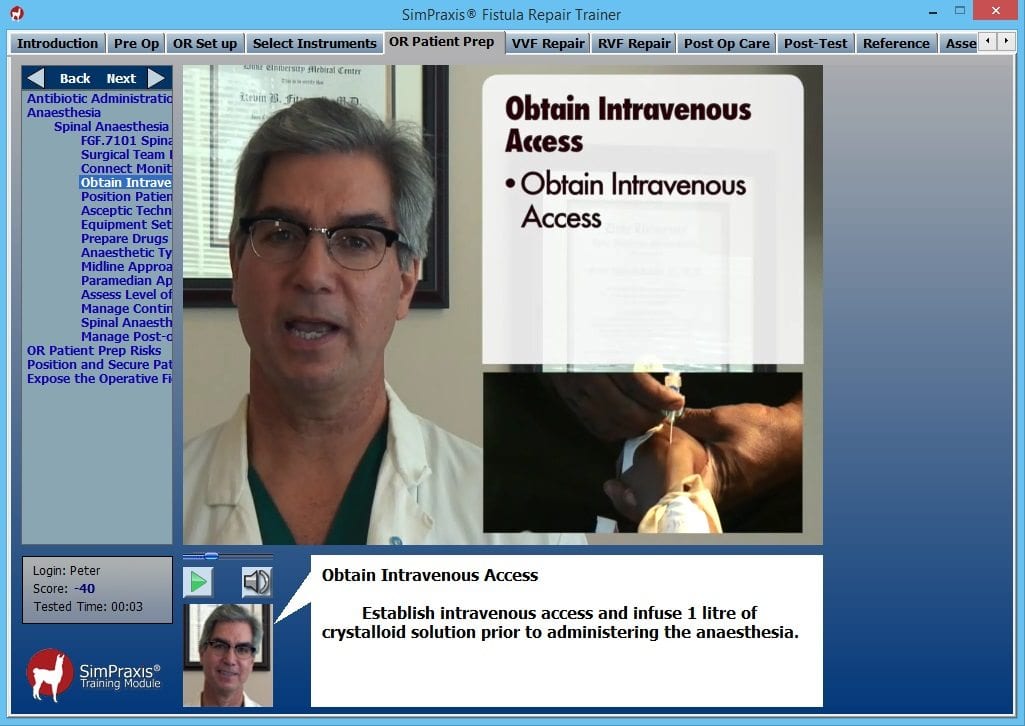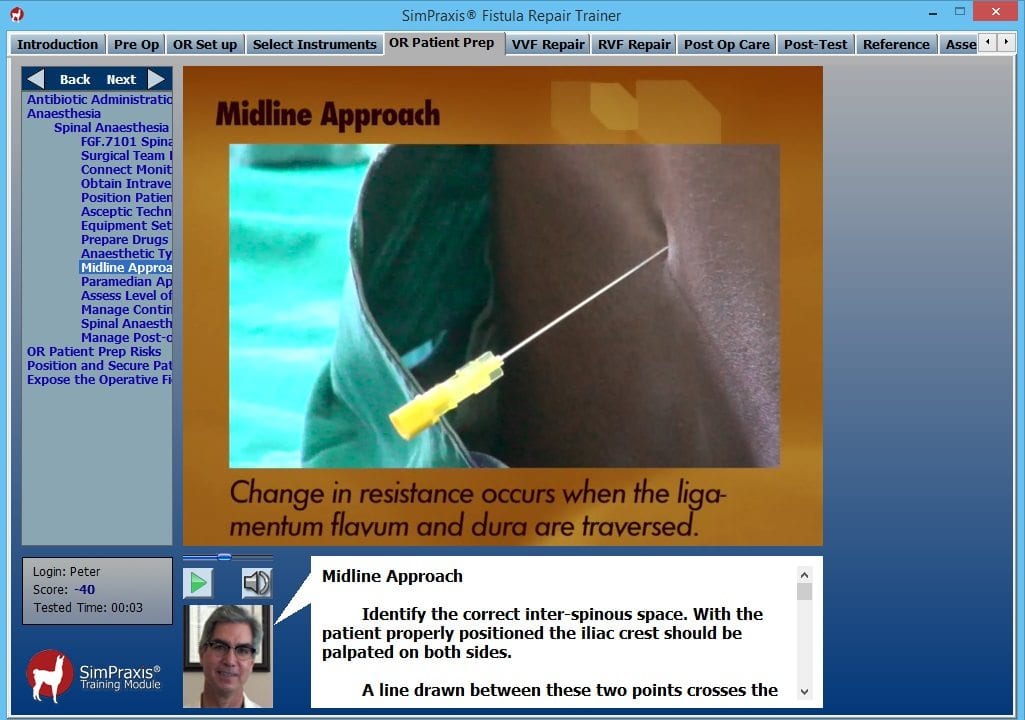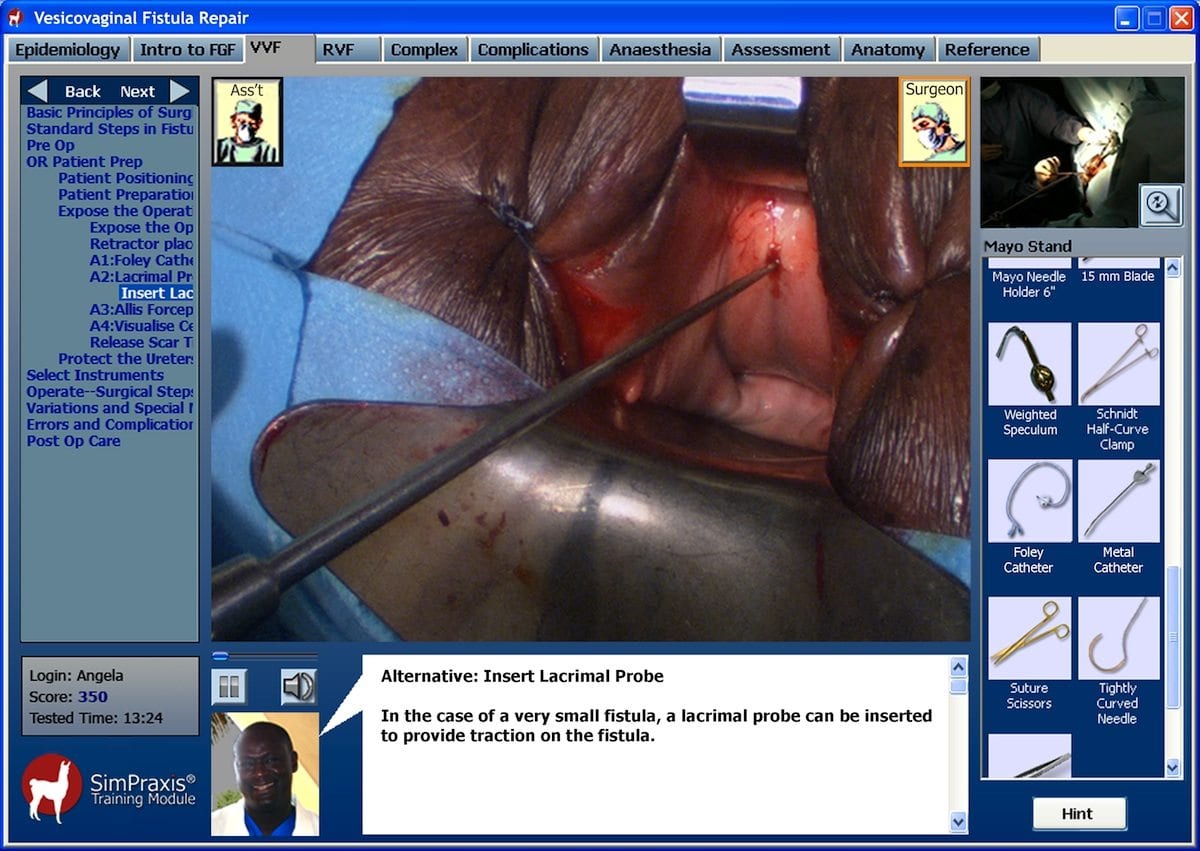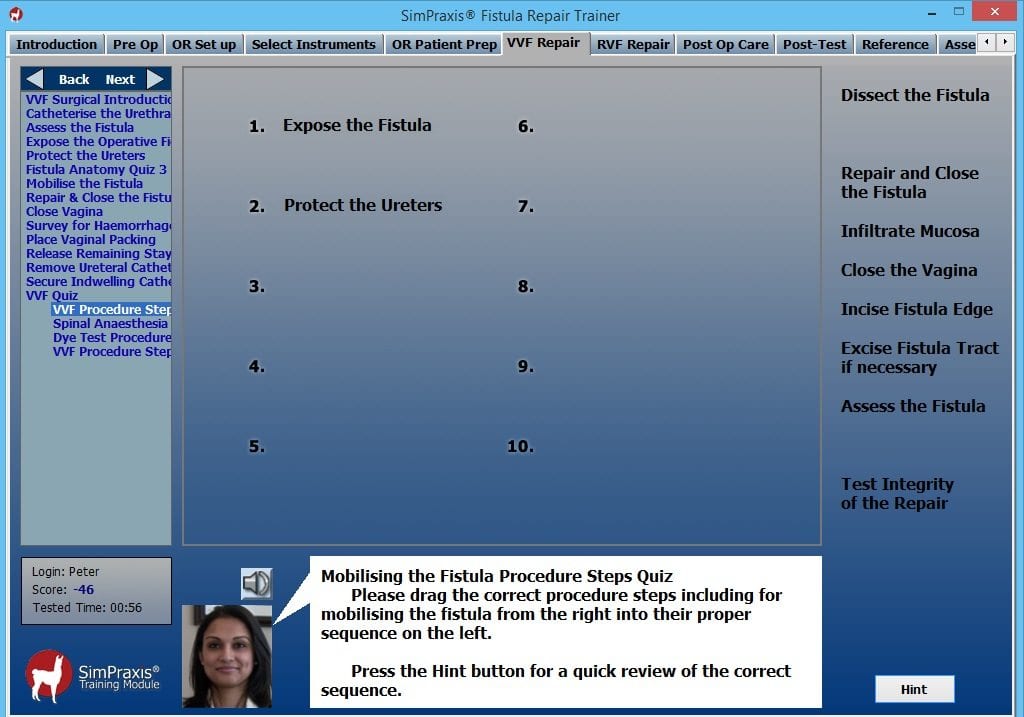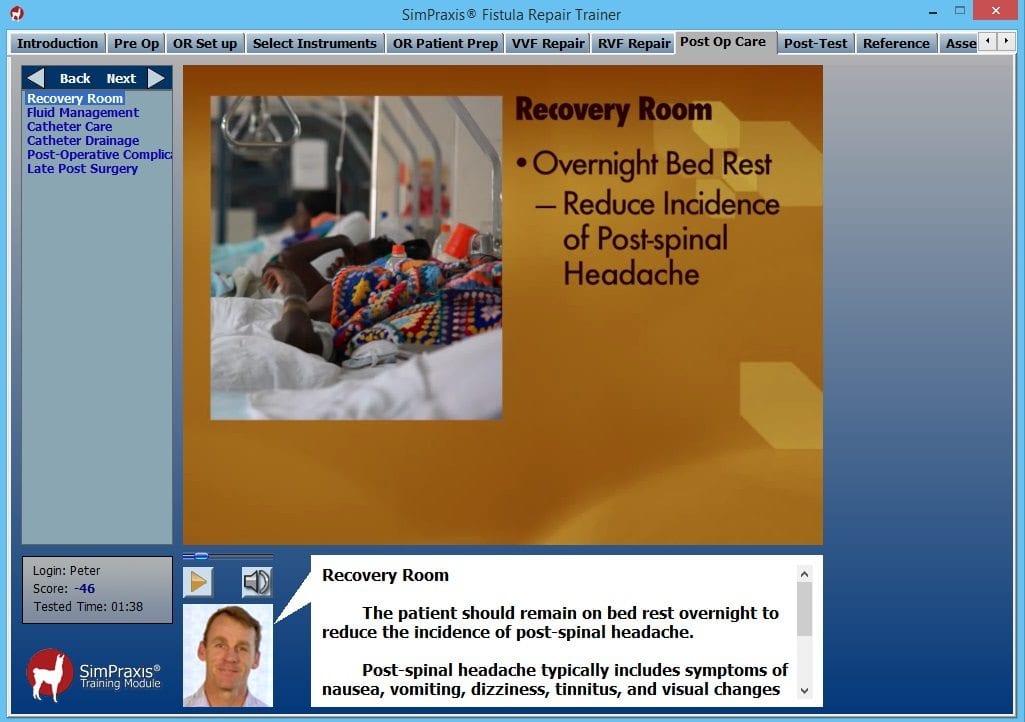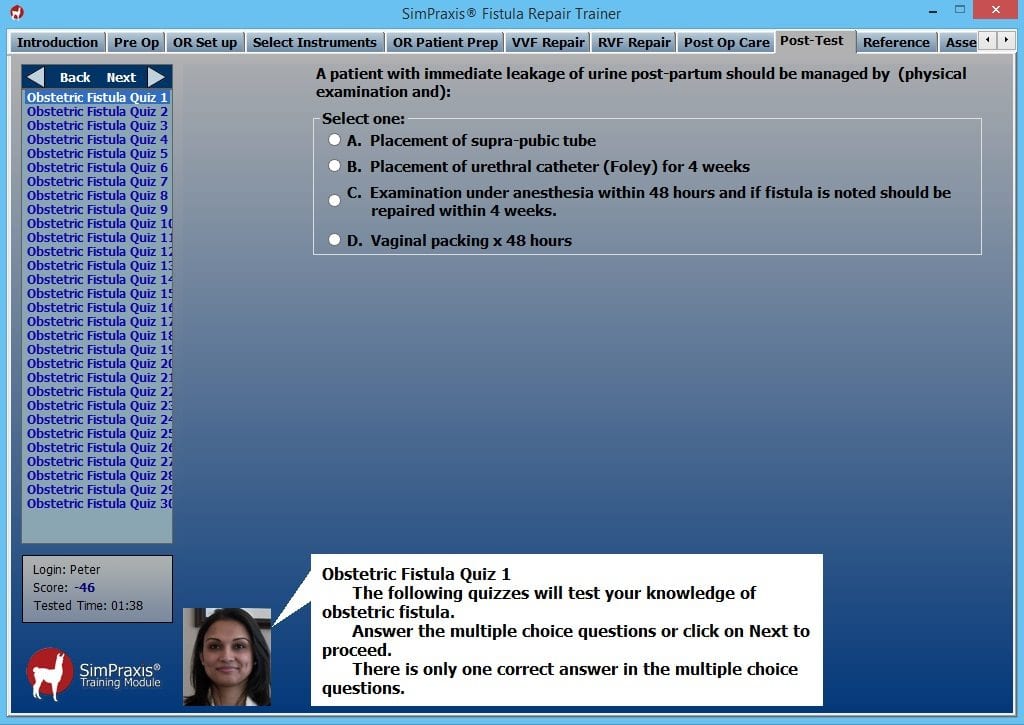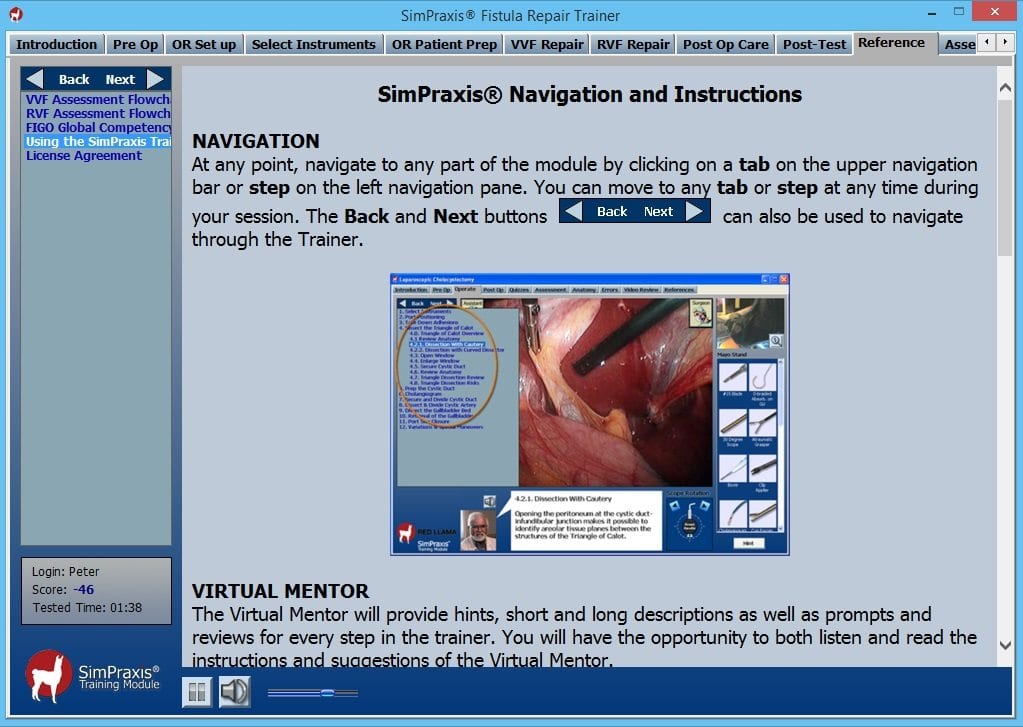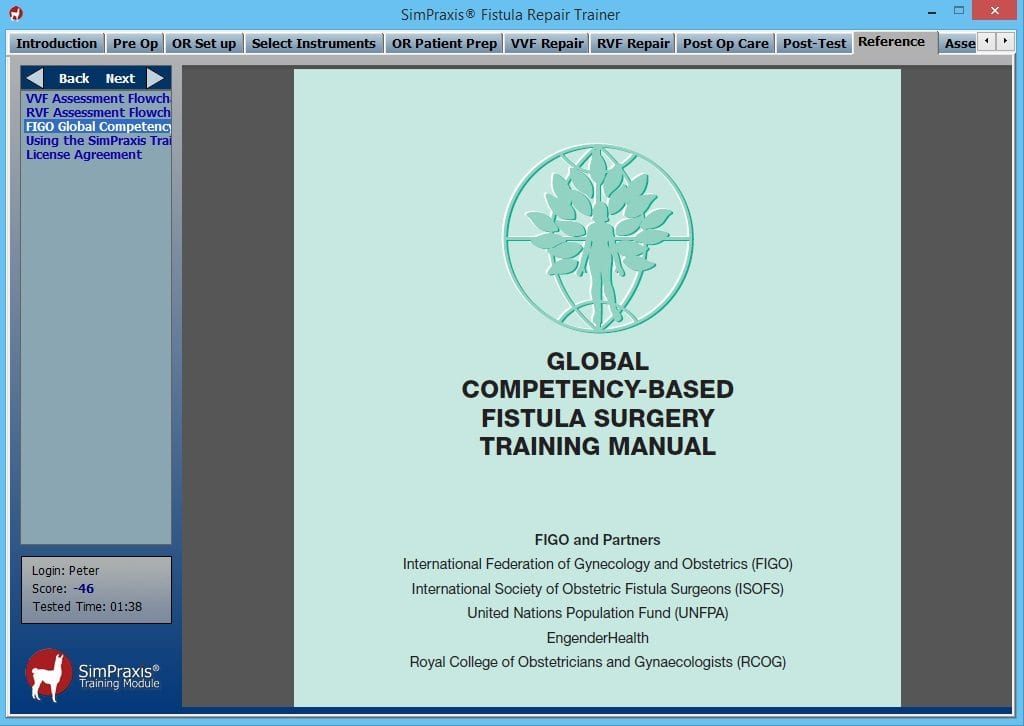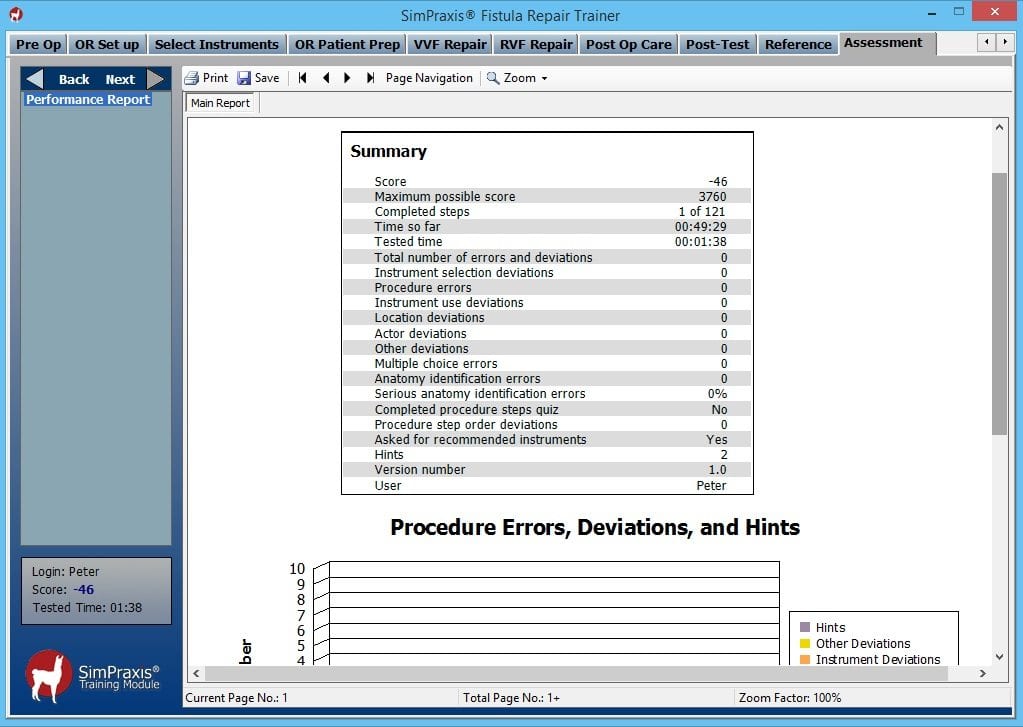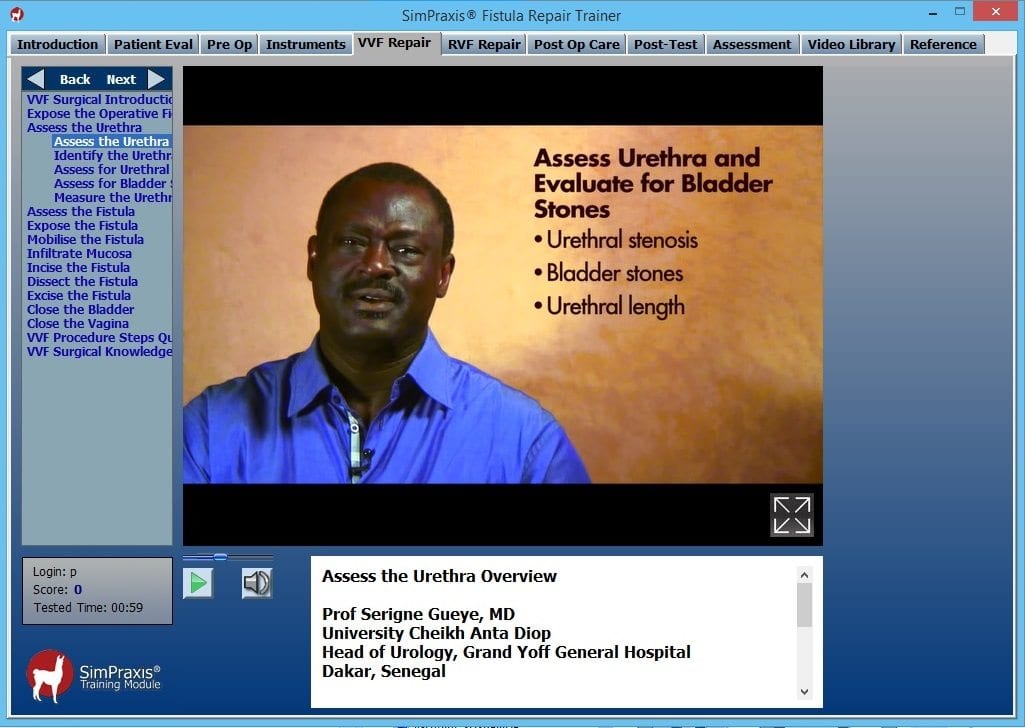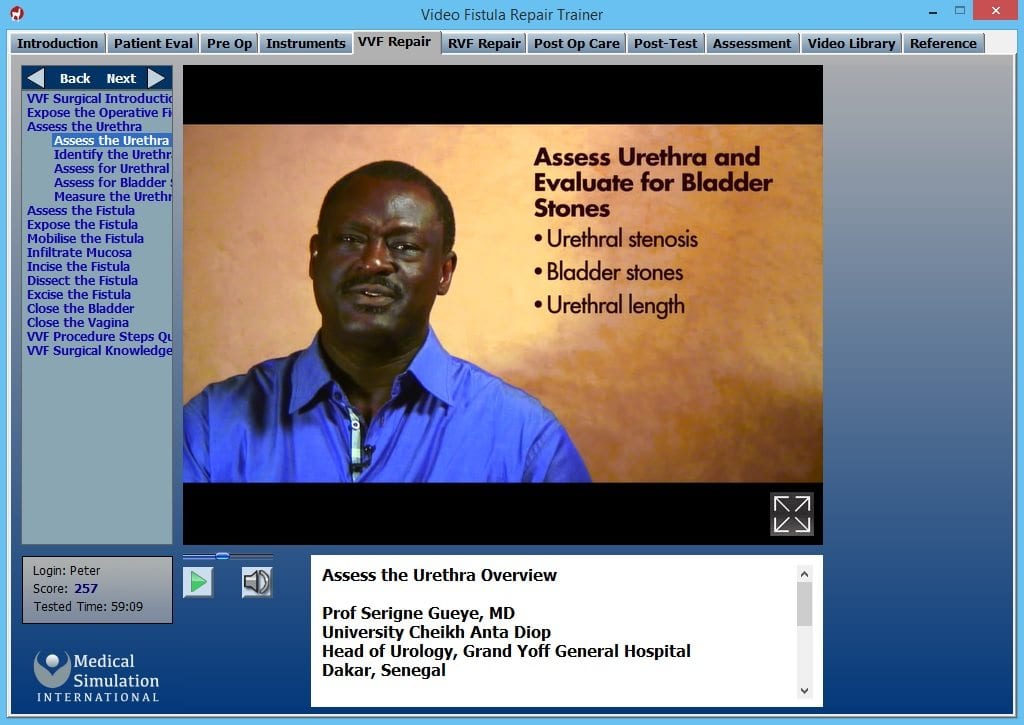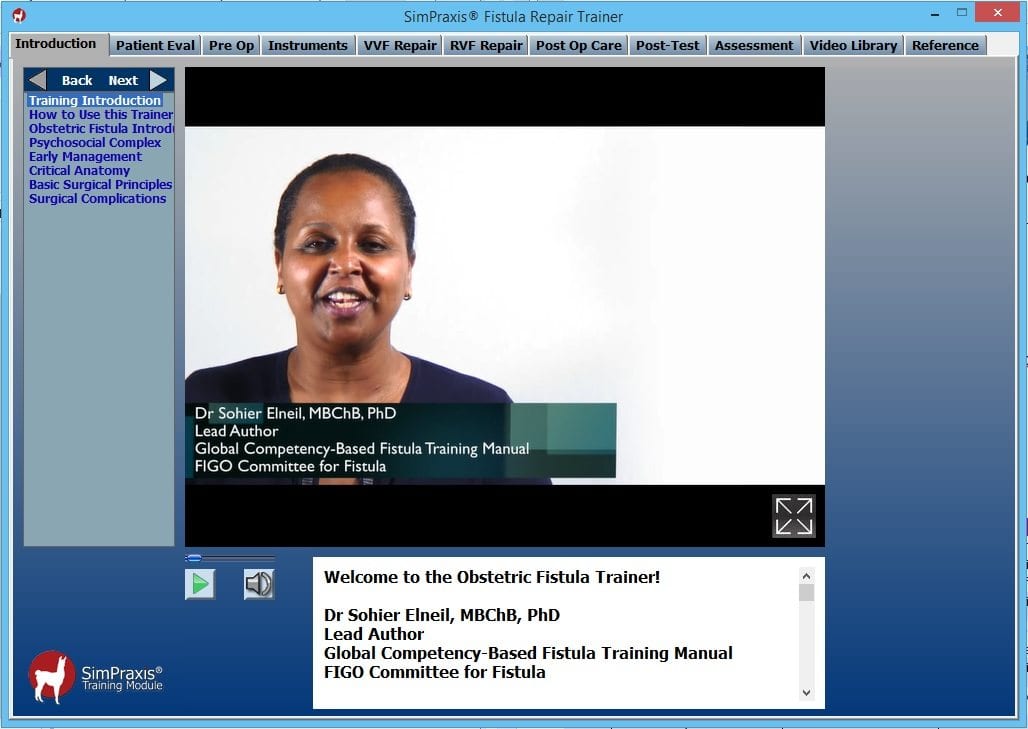Simulation Technology: The key to universal standardization of medical procedures
Medical Simulation Training Technology
Surgically treated disorders represent a significant portion of the global health burden and are inadequately addressed in low- and middle-income countries (LMICs)1. Simulation and video training tools have dramatically changed the face of medical training in the developed world2, but have yet to be effectively introduced in LMICs. Medical Simulation International (MSI) intends to change this.
We have developed an interactive video simulation platform in an effort to provide state-of-the-art surgical training that utilizes existing resources by functioning on a standard personal computer. Simulation strategies can be highly technical and costly. However, even the lowest resource hospitals often have access to a personal computer for its professional medical staff.
Program Design
The foundation of our program is a series of high definition video recordings of surgical procedures performed by a master surgeon. The curriculum is robust and blends live intra-operative video with expert lectures, anatomy reviews, decision making flowcharts, texts, animations, still images as well as quizzes and a test of knowledge into an interactive format, is designed for medical professionals to engage and optimally prepare them for hands-on surgical training at a certified center. This unique program is not intended to replace formal bedside and intra-operative procedural training. Rather, our program is an accelerator and enhancement to the learning process.
The Training Course
The trainee completes all steps to simulate an entire surgical procedure. Step-by-step, the trainee completes all steps to simulate an entire surgical procedure. “Hot spots” are integrated within the video picture frame to highlight the anatomic structures in the surgical field.
After watching the full procedure, the trainees engage in a video-based procedure by choosing an instrument from a virtual instrument stand using their computer’s mouse to maneuver and perform specific actions. Errors are logged to identify an area which requires more focused training and will require the trainee to repeat the step until the correct choice is made. Once correct, the video provides running commentary of the missed step, providing useful tips to supplement the trainee’s learning.
The Efficacy
We expect this program to dramatically improve the efficiency and the quality of the hands-on training that takes place when trainees present to a certified training centers. Additionally, upon returning to their home hospital, this video trainer will provide the trainee with a useful refresher and build confidence to deter trainees from abandoning their newly acquired skills. The measured outcomes include assessments of trainees’ cognitive knowledge acquisition, skill acquisition and number of cases performed.
The Interactive Simulation Trainer runs on a personal computer, which even the most isolated hospitals in the developing world have on site for physician use.
By utilizing tools available in-country, rather than shipping textbooks or teachers overseas, we believe many more providers can be trained rapidly, safely and in a cost and time-effective manner.
The Outlook: MSI’s Plan to Scale
MSI’s main initiative is to expand the skills and capabilities of in-country medical professionals. Men, women and children suffer daily because of a lack of medical care and access to adequately trained medical professionals in the developing world. Improved and accelerated methods of training are desperately needed to build health care capacity for the majority of the world’s population.
Our 36 month plan is to develop, distribute and validate three additional video simulation trainers to teach medical providers of various disciplines to perform Cesarean section, tubal ligation and vasectomy.
Looking further, our 10 year aim is to upscale the production of video simulation trainers to build a digital library of video-based surgical simulators that will be provided free of charge to medical trainees and providers of all disciplines in LMIC. A hybrid of public, non-governmental and commercial investments will be the engine to drive this expansion. Engagement of national ministries of health as well as regional, national, and local medical societies will be essential in the distribution and uptake of these training tools.
MSI plans to build and distribute a digital library of video-based surgical simulators that will be provided free of charge to medical providers of all disciplines in LMICs.
- “Essential Surgery” Vol. 1, World Bank. Disease Control Priorities, 3rd edition. 2015.
- Ross E. Willis, Kent R. Van Sickle, “Current Status of Simulation-Based Training in Graduate Medical Education”, Surg Clin N Am 95 (2015) 767-779
Content has been developed in partnership with the International Federation of Obstetrics and Gynecology (FIGO) and a panel of expert fistula surgeons.




